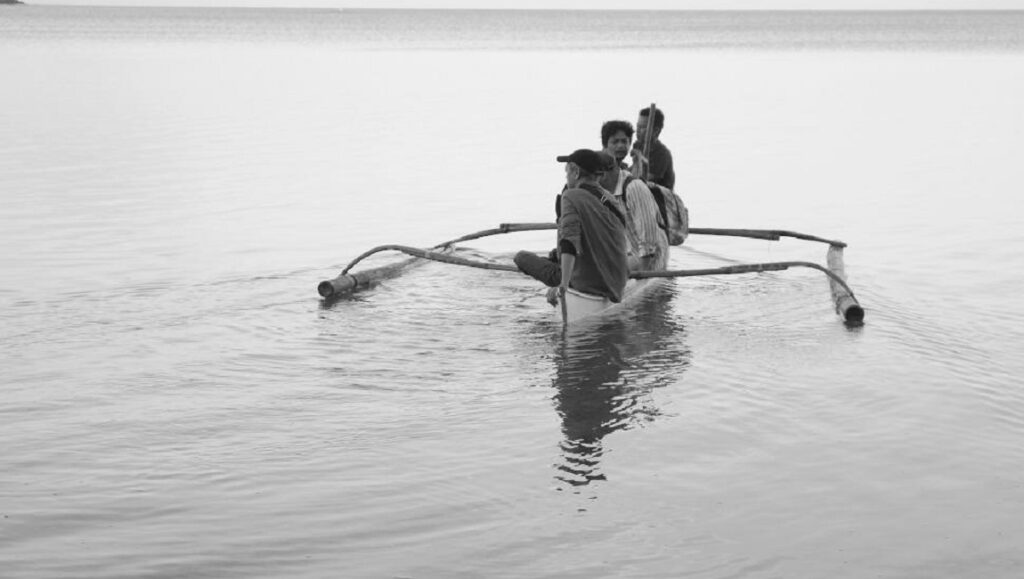Diaz‘s signature long-takes here work more to push the material into territory of fatalism rather than substantive political observation.
Lav Diaz knows violence. The director’s filmography is virtually an exemplar of the temporal nexus of historical and contemporaneous representations of authoritarian exploitation. Lahi, Hayop holds that line, focusing on a string of snowballing murders and intimidations. But the film also appears to find Diaz coming to loggerheads with his own ideas, and contesting history through quasi-scientific projection. Central to the film is the legacy of land, and the horrors of its colonial pasts — in particular, the commodity fetishism of illegal smuggling routes carved out through the Philippines. This history threads contemporary conceptions of greed through the focal depiction of present-day migrant workers, whose vexations over minimum wage labor manifests as fits of (otherwise) inexplicable rage. Violence between these members of the working class is presented in an immediate, bracing way, but it also suggests the spectres of the historical figures who haunt the environments in which Diaz chooses to shoot.
Unfortunately, this meaning is undercut by a voice-over that means to frame said violence instead as the result of ‘undeveloped cerebral activity.’ It’s even suggested that those with truly evolved perspectives are those of religious icons: the saints, the Buddha, Jesus Christ. Imposing this idea on the film is conforming to religious utopianism, the malleable figures of history idealized and placed within a trajectory of evolution as the aspirational result of a reconfigured psychology. And it’s reductive in the face of a history that’s plainly shown us the material conditions which breed violence. As biological factors and ‘animalism’ become Diaz’s primary lenses, it’s hard to see where the political has its place, how it isn’t immaterialized through utopianism. Hence the contradiction here: Diaz’s signature long-takes articulate the way people are made the product of their environment, but that affect emphasizes biological factors that turn the film more fatalistic than political. Diaz seems to suggest that further evolution is needed in order to conquer our most corruptive emotional dimensions, casting the icons of religion as aspirational in value. In the process, he deprives his human subjects of agency, and ultimately sees time as the only balm.
You can currently stream Lav Diaz’s Genus, Pan on Mubi.
Originally published as part of Venice International Film Festival 2020 — Dispatch 2.


Comments are closed.